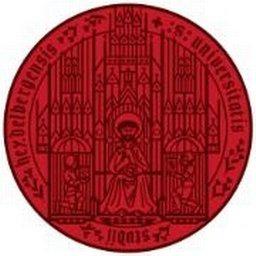Verkäufer für Polstermöbel(m/w/d), auch Quereinstieg aus Hotel o. Gastro Weimar Vollzeit/Teilzeit Multipolster GmbH & Co. Handels-KG Staplerfahrer (m/w/d) - Seitenhubstapler Regensburg Vollzeit bindan GmbH & Co. KG Montér / svářeč (m / f / d) – ocelová konstrukce Deutschland Vollzeit STRABAG Großprojekte GmbH, Bereich Großprojekte Bayern
Starte deine Karriere als Several Interdisciplinary PhD Positions (f/m/d) at Heidelberg University bei Universität Heidelberg

Universität Heidelberg
Heidelberg
Stellenausschreibung
Scope and duration of the PhD positions:
- Three-year contract with the possibility of extension
- Salary according to TV-L E13 level; contract details depend on research project
- Faculty/department affiliation according to research group
- Start: October 1, 2023, unless otherwise stated below
- Application details: see bottom of page
PhD positions are available for the following PhD project topics:
Immersed interface methods for the simulation of cell movement
- Research group: Mathematical Methods of Simulation
- Supervisor: Prof. Dr. Guido Kanschat
- Start: Position available immediately
- Additional information: Joint project with Prof. Dr. Christine Selhuber-Unkel at IMSEAM; depending on focus, Dr. rer. nat. or Dr-Ing. possible
Multiscale Methods and Localized Model Reduction for Convection-Dominated Problems and Applications in Climate Modelling
- Research group: Numerical Analysis and Uncertainty Quantification
- Supervisor: Prof. Dr. Robert Scheichl
- Additional information: In collaboration with Prof. Dr. Jörn Behrens and Dr. Sanam Vardag.
Modeling and simulation of thermochemical energy conversion processes for the flexible use of hydrogen-based renewable fuels
- Research group: Multiphase Flows and Combustion
- Supervisor: Prof. Dr. Eva Gutheil
- Start: September 16 or October 1, 2023
Transformer-based cell tracking in virology
- Research group: Image Analysis and Learning
- Supervisor: Prof. Dr. Fred Hamprecht
- Start: Position available immediately
- Additional Information: The aim is to develop software that biologists will really be able to use. The project entails a large software component, and the ideal candidate brings experience in full stack software development, a deep understanding of machine learning, and a passion to help address some of humanity′s greatest challenges by working closely with virologists from SFB 1129. We are a small and friendly team that has previously made real contributions to the bioimage analysis community (ilastik, plantseg).
Geometric machine learning in quantum chemistry: learning kinetic energy density functionals
- Research group: Image Analysis and Learning
- Supervisor: Prof. Dr. Fred Hamprecht
- Start: Position available immediately
- Additional information: If successful, this project will enable a breakthrough in the computational cost of quantum chemical calculations. A solid understanding of quantum mechanics and machine learning are required. We are a small and friendly team and work on this exciting project together with the lab of Prof. Dr. Andreas Dreuw in the simplaix consortium.
Modelling cytoadhesion of malaria-infected red blood cells
- Research group: Schwarz group, theoretical biophysics
- Supervisor: Prof. Dr. Ulrich Schwarz
- Start: Position available immediately
- Additional information: A background in hydrodynamics and/or molecular dynamics would be helpful. This project is funded by SFB 1129 (integrative analysis of pathogen replication and spread).
Traction force microscopy for biological cells in three dimensions
- Research group: Schwarz group, theoretical biophysics
- Supervisor: Prof. Dr. Ulrich Schwarz
- Start: Position available immediately
- Additional information: A background in continuum mechanics and inverse problems would be helpful. This project is funded by the excellence cluster 3DMM2O.
Domain Uncertainty Quantification
- Research group: UQ and Scientific Machine Learning
- Supervisor: Jun. Prof. Dr. Jakob Zech
- Additional information: Applicants should possess a strong background in mathematics, ideally with a focus on PDEs. Experience with machine learning is also highly beneficial. Postdocs are welcome.
Machine Learning for Programming (2 PhD positions)
- Research group: Parallel and Distributed Systems (PVS)
- Supervisor: Prof. Dr. Artur Andrzejak
- Start: September 1 or October 1, 2023 for one position, later start possible for second position
Weitere Stellenangebote
Prämium Inserate
Ähnliche Stellenangebote
Landwirt Ackerbau Kraak Ausbildung Hof Karp Elektriker | Elektroniker (m/w/d) Berlin Ausbildung e.i.s.ber Elektro- & IT-Systeme Berlin GmbH & Co. KG
